Climate Crisis and Climate Justice
A balanced climate is essential to life. But with the climate crisis impacting more and more Filipinos each year with rising temperatures, longer droughts, heavier rains, and stronger storms, we need to work towards solutions that ensure a more sustainable future for us all.
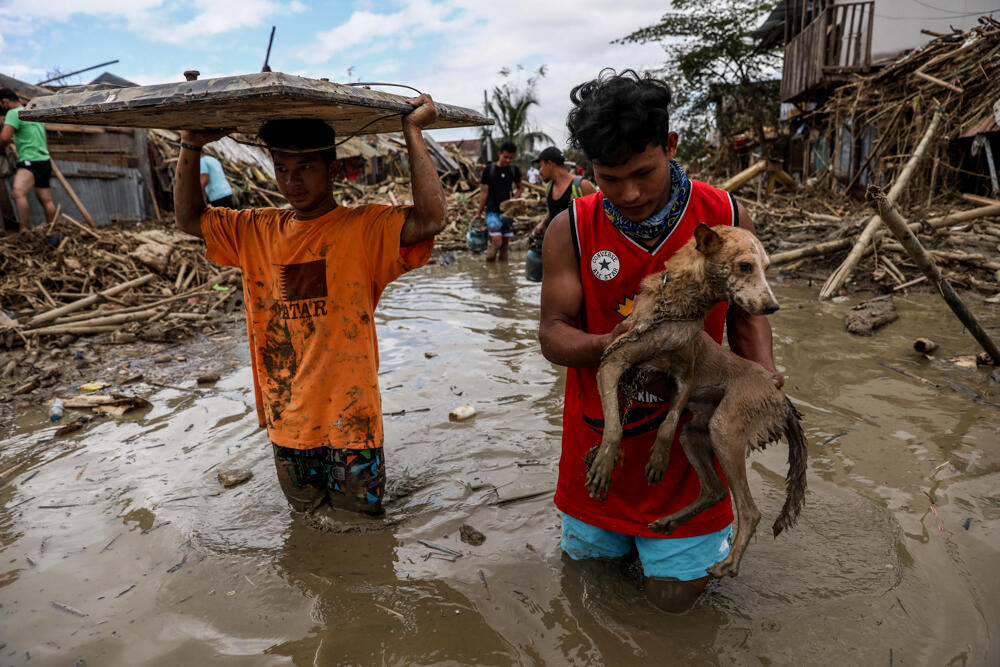

506.1 billion
pesos in estimated losses and damages from climate-related hazards from 2010 to 2020
Source: Department of Finance
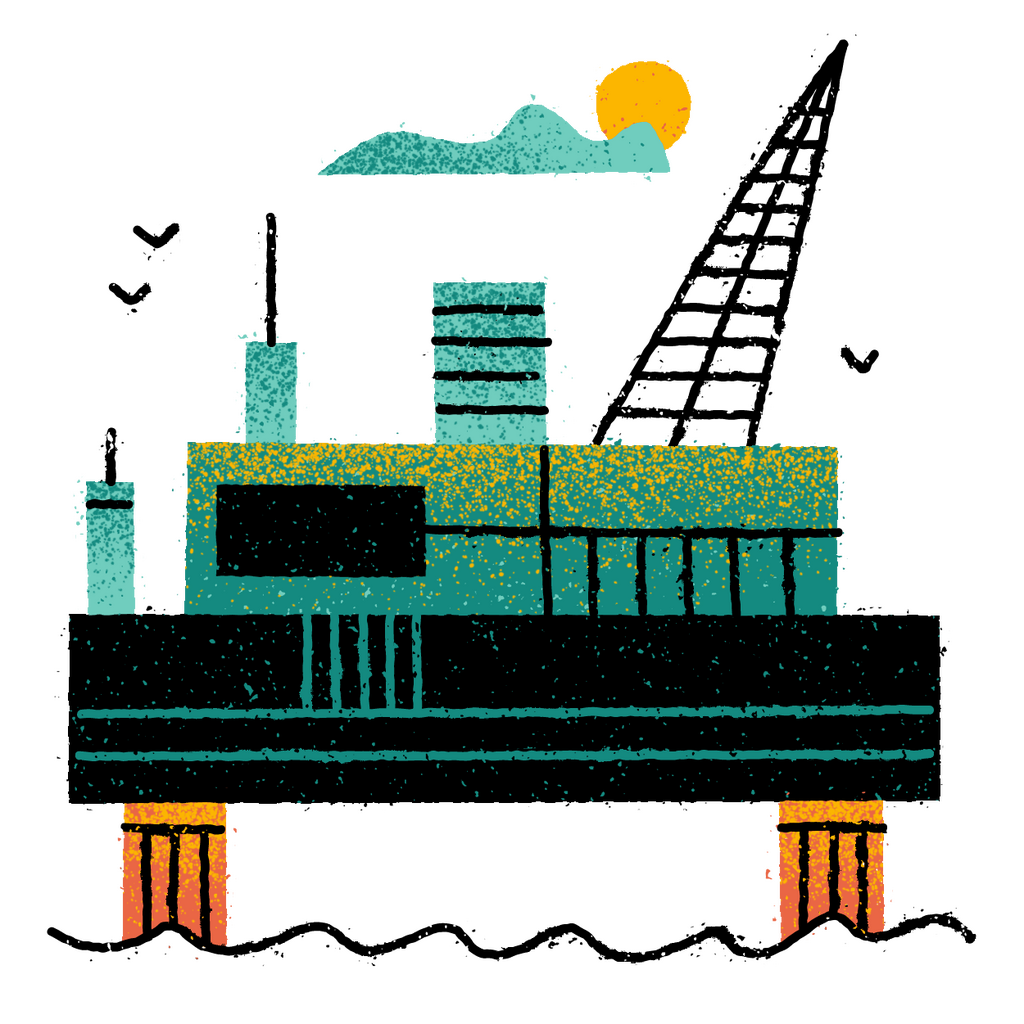
Only 47
oil, gas, and cement companies are largely responsible for the worsening climate crisis
Source: Heede (2013)
The problem of climate change
Our climate is collapsing. Climate change and global warming used to be things we only read about, abstract problems too far off in the future to worry about. Now, it’s something that’s felt intensely, especially here in the Philippines. We see it with every passing year—each summer is hotter than the last, stronger typhoons are ravaging our islands, and the intervals between extreme weather events are getting shorter.
This has led to immense losses in human life and biodiversity, as well as structural damage to not just public and private infrastructure but also to our natural heritage. And sadly, the most affected are the marginalized communities who are the least able to cope with floods, storm surges, rising sea levels, among other climate impacts.
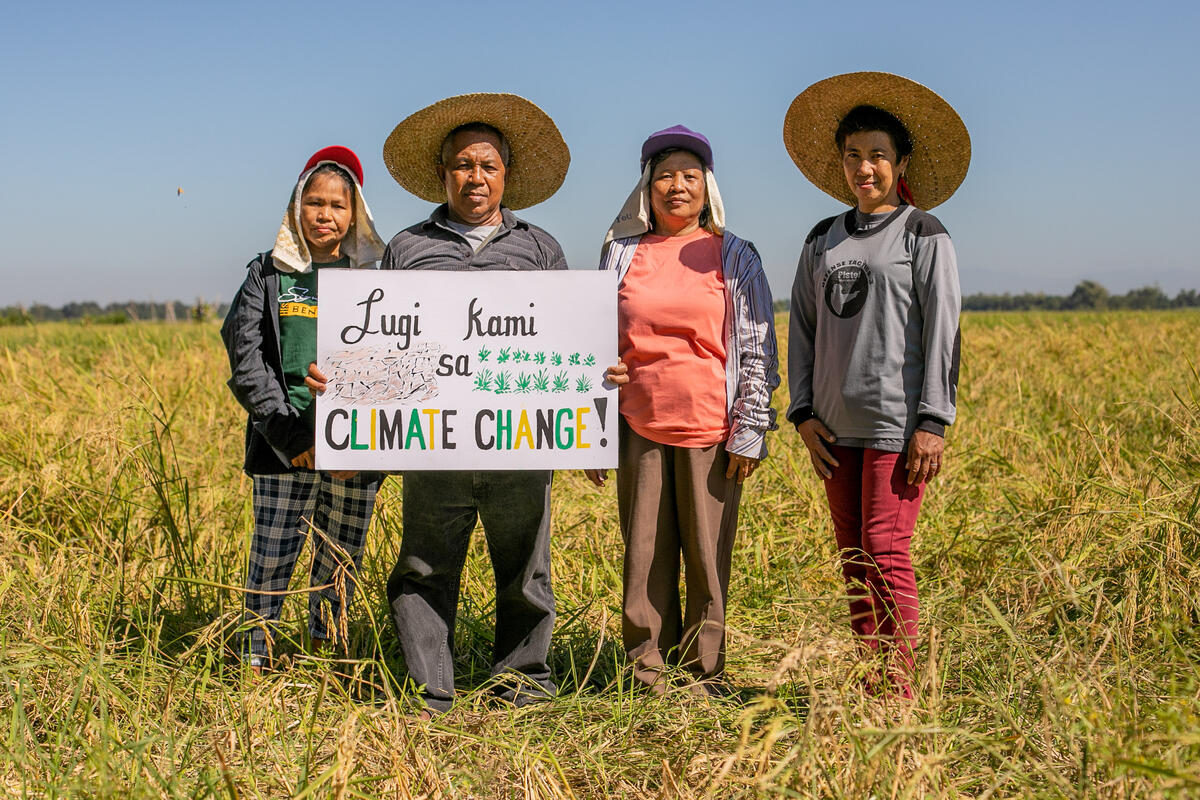
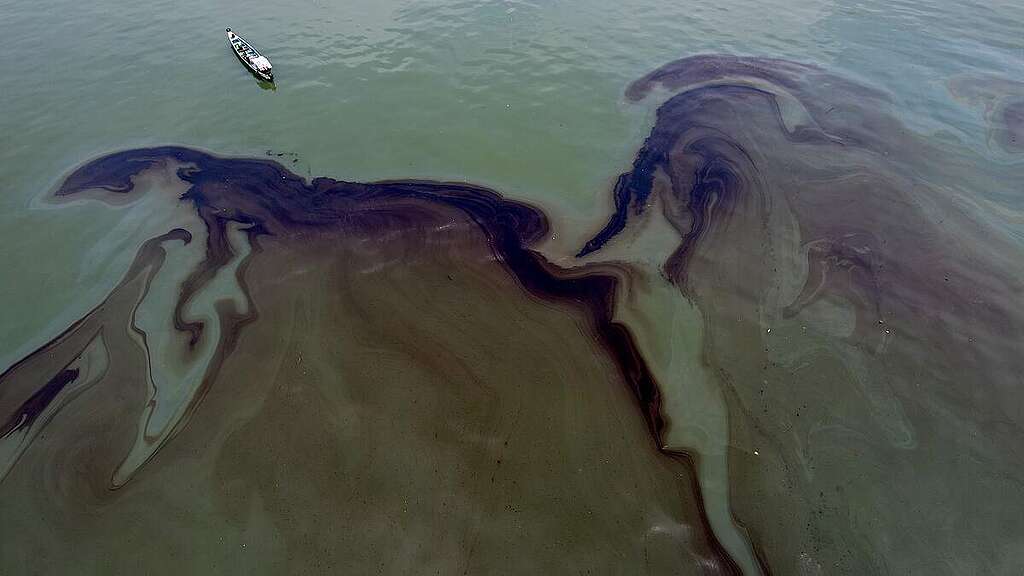
What we must not forget is that the current climate crisis is a man-made one, with multinational corporations that deal with fossil fuels as the biggest contributors. Major culprits include the oil, energy, and cement companies, which are the primary source of greenhouse gas emissions and the major cause of global warming and climate change. The more they drill for and burn oil, gas, and coal for profit, the more they contribute to air, land, and water pollution, devastating vulnerable communities both directly and due to effects caused by the destruction of the environment.
Here, we see that the ongoing climate crisis is a cross-cutting issue, affecting not just the environment but also social justice, the local and global economies, and even global security. As such, it is our shared responsibility to work together to minimize the risks and curb the crisis for a more climate-resilient future.
The solutions for a climate-resilient future
Our mission is to not just make people aware of how we can protect our environment but also empower and bring together fellow climate warriors to make our goal of a sustainable and climate-resilient future a reality.
Some of the areas Greenpeace has been focusing on to address the climate crisis include: advocating for climate justice through petitions and working with local communities to hold fossil fuel companies accountable by making them pay for the damage they have caused; pushing for more awareness and a just transition to renewable energy such as solar and wind energy; and strengthening our climate resilience efforts with the help of LGUs and communities to ensure that they are not only prepared for climate emergencies but are also given reparations for previous damages.
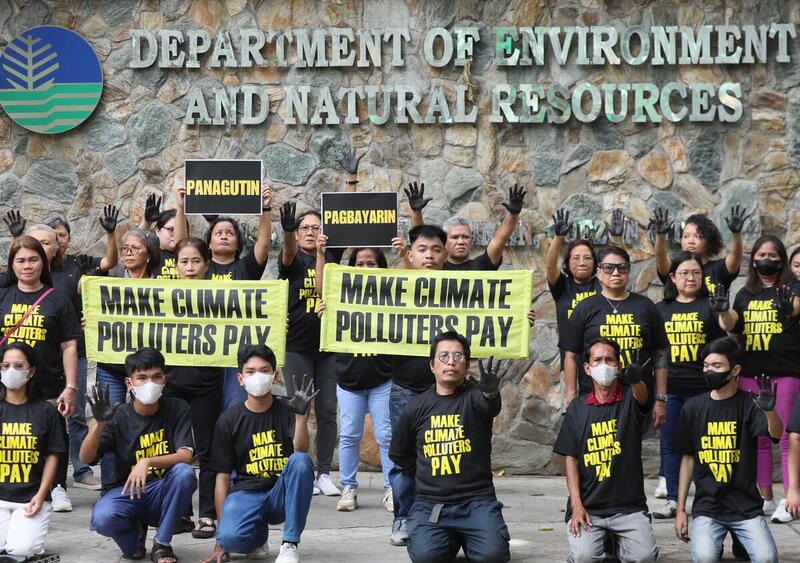
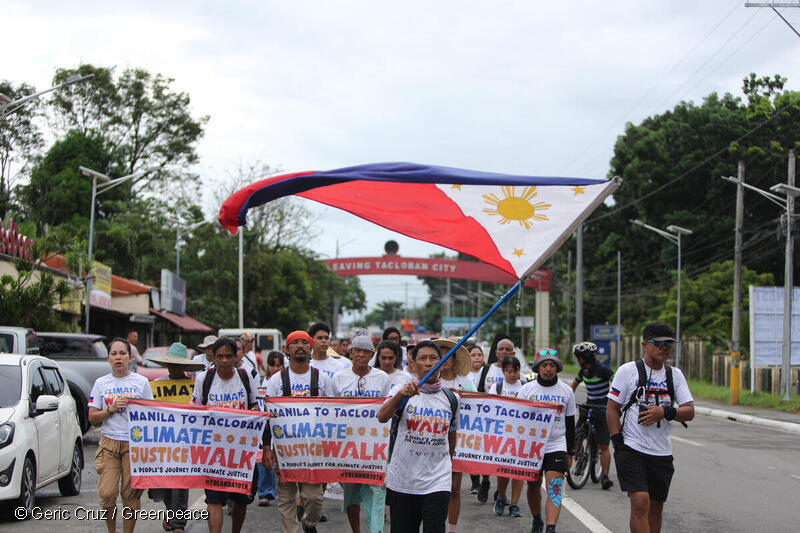
Some of our activities and campaign wins over the years include organized blockades to impede the operations of fossil fuel giants like Shell Pilipinas Corporation, the 30-day Climate Justice Walk in 2023 which paid tribute to the 6,000 lives lost to Typhoon Haiyan in 2013, the Climate Reparations Ship Tour with the Greenpeace ship Rainbow Warrior, the People’s Museum of Climate Justice, and the landmark Climate Change and Human Rights Inquiry in the Philippines into corporate responsibility for the climate crisis, among many others.
How you can help
Join us in the journey towards climate justice by taking simple actions such as signing petitions, and joining climate campaigns. Together, we can create a ripple of change that will positively impact future generations.
-
![[Blog] WHEN THE TIDE BECOMES THE TEACHER](https://www.greenpeace.org/static/planet4-philippines-stateless/2025/06/95c8411e-9a04f785-4293-46a6-a6cf-425f0a384682.jpg)
[Blog] WHEN THE TIDE BECOMES THE TEACHER
Did you know that in Batasan, a small island in Bohol, there’s a classroom that floods during high tide?
-
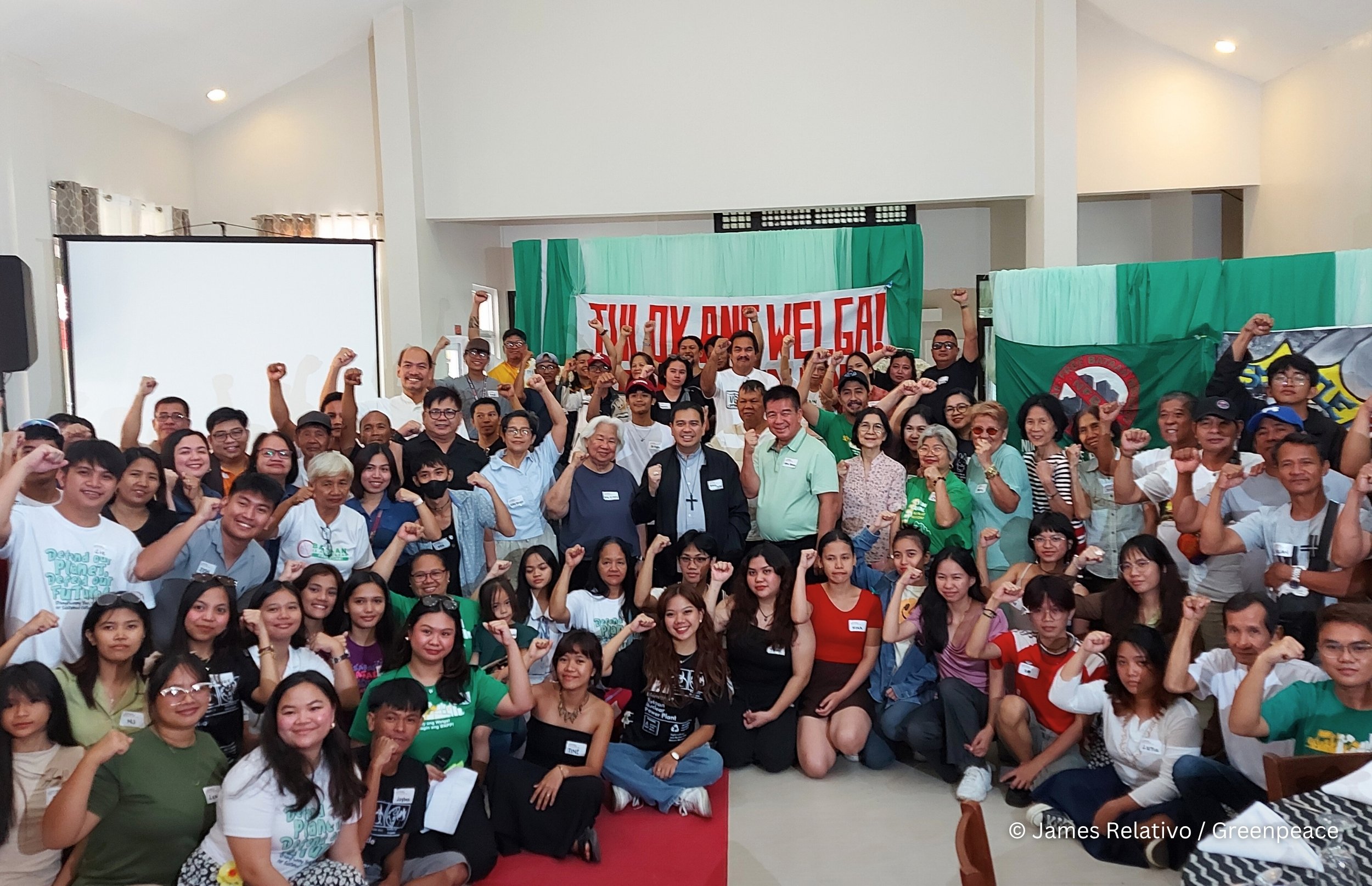
Greenpeace Philippines Throws Full Support Behind Bataan Communities vs. Nuclear Revival
We stand in solidarity with the brave residents, grassroots organizations, and activists in Bataan as they mark the 40th anniversary of Welga ng Bayan Laban sa BNPP (“People’s Action Against the Bataan Nuclear Power Plant”).
-
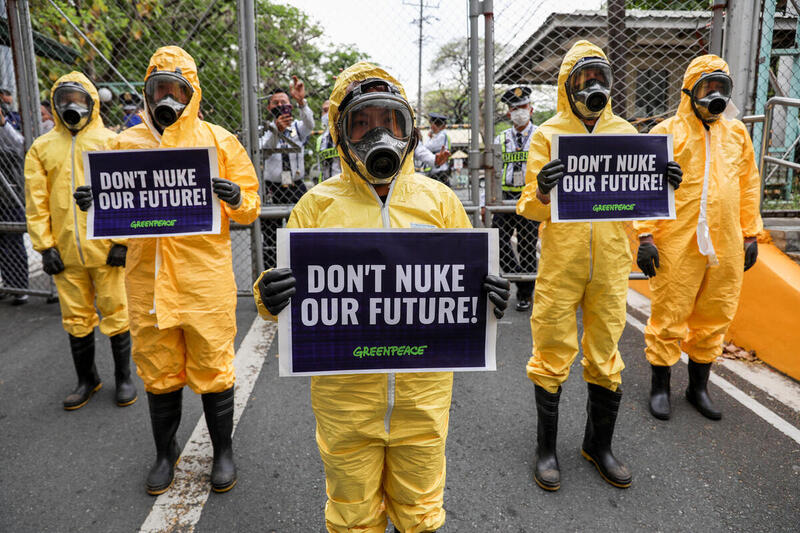
Greenpeace Statement on the passage of the nuclear bill in the Senate
Greenpeace is calling on the Senate to repeal the nuclear energy bill before we are locked into a path we will regret in the future.
The Climate Change & Human Rights Inquiry Archive
Explore the comprehensive archive of the National Inquiry on Climate Change (NICC), initiated by the Commission on Human Rights of the Philippines. This archive includes key documents, testimonies, and findings that investigate the role of major fossil fuel companies in contributing to climate change and its impact on human rights in the Philippines. In 2015, a group of courageous Filipinos, alongside Greenpeace Philippines, stood up against the fossil fuel industry (cement, oil, and gas companies), demanding accountability for the climate-related disasters affecting their communities—an effort that brought global attention to the intersection of climate change and human rights.
-
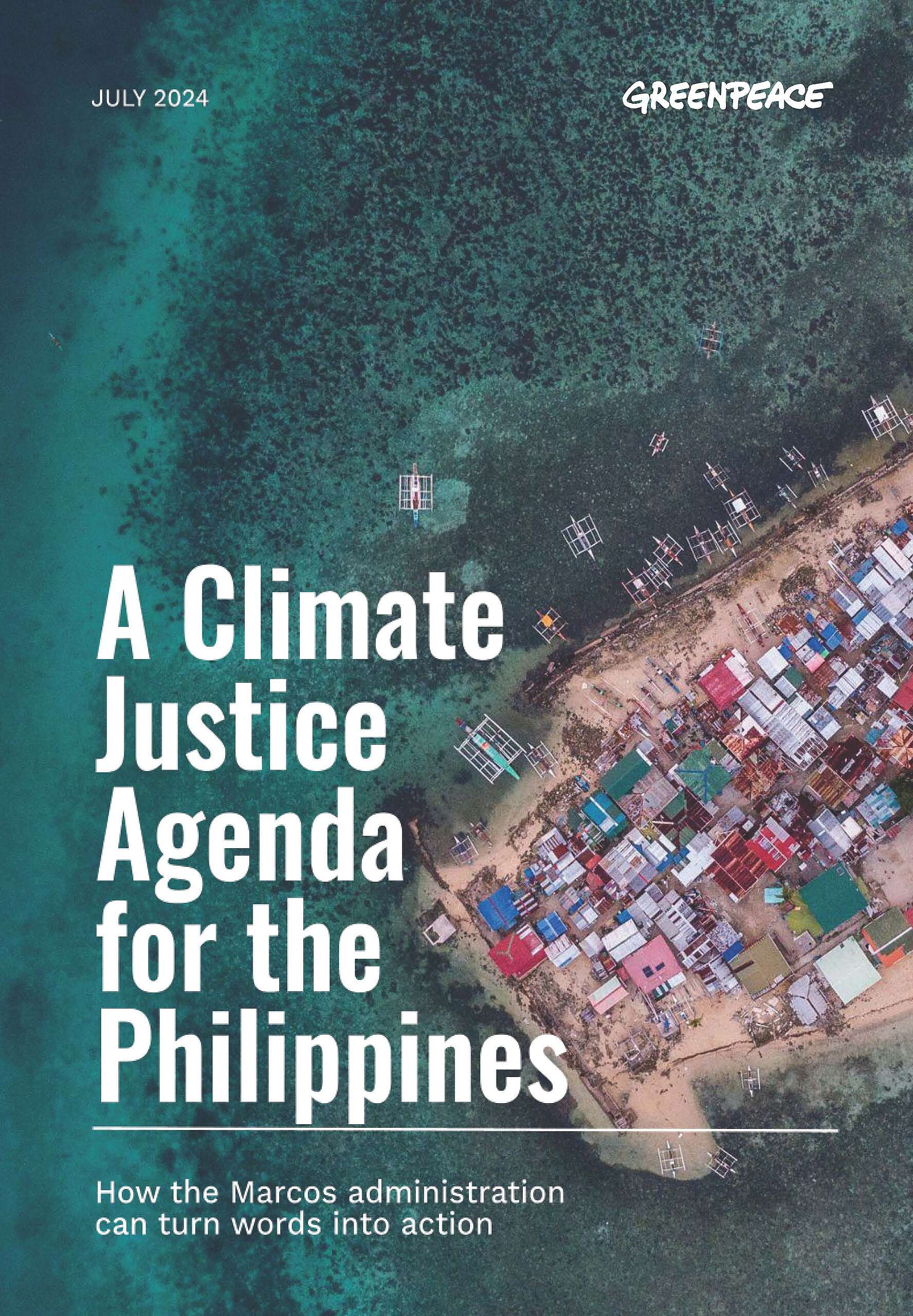
A Climate Justice Agenda for the Philippines
As President Marcos Jr.’s upcoming SONA approaches, Greenpeace Philippines urges his administration to turn words into action by adopting a Climate Justice Agenda that prioritizes the survival and wellbeing of Filipinos, now and for future generations.
-
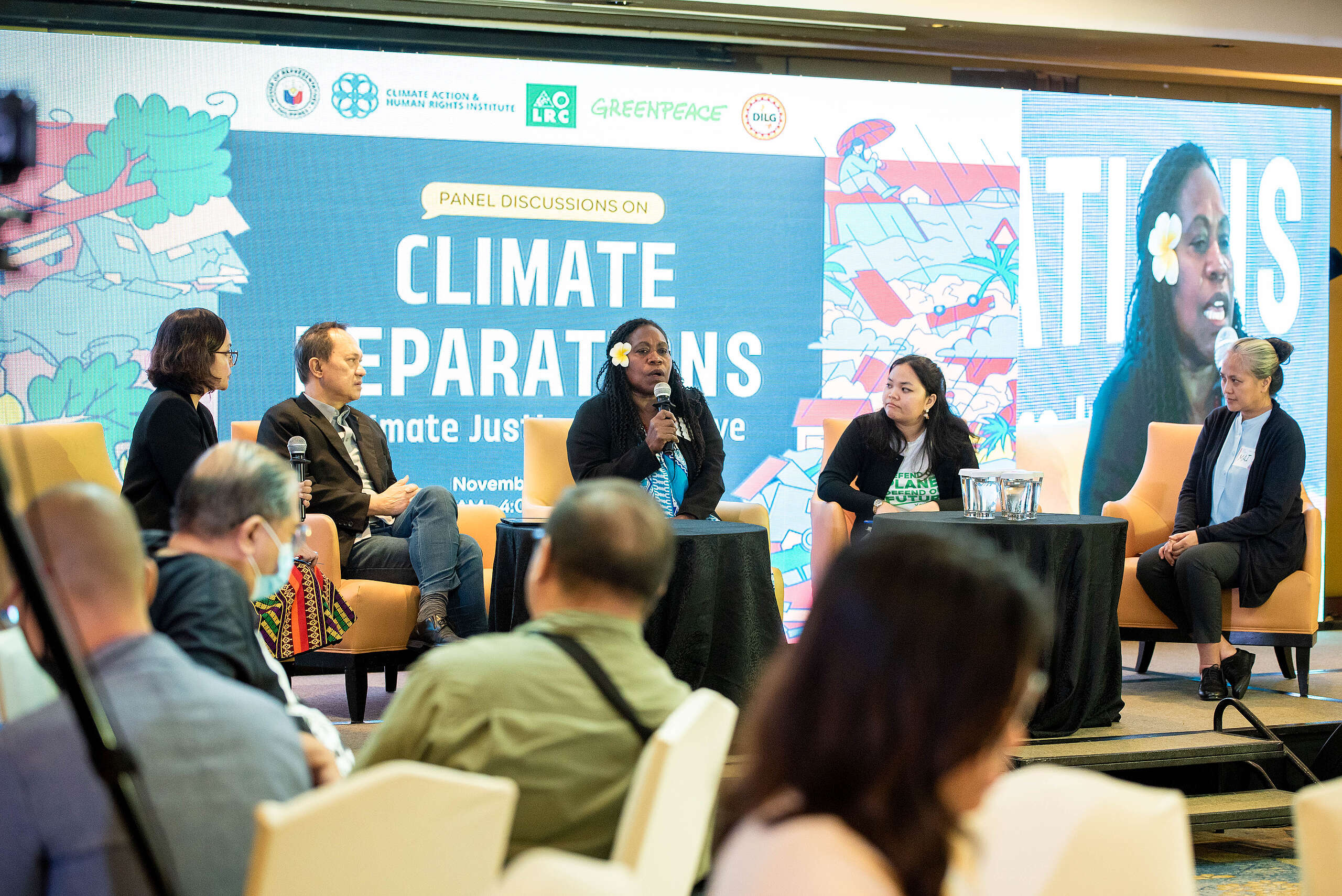
CLIMATE REPARATIONS:A CLIMATE JUSTICE IMPERATIVE
As COP28 nears, the call for climate justice and the fulfillment of climate financing pledges becomes increasingly vital. This year’s United Nations Climate Change Conference, which focuses on emissions reduction,…
-
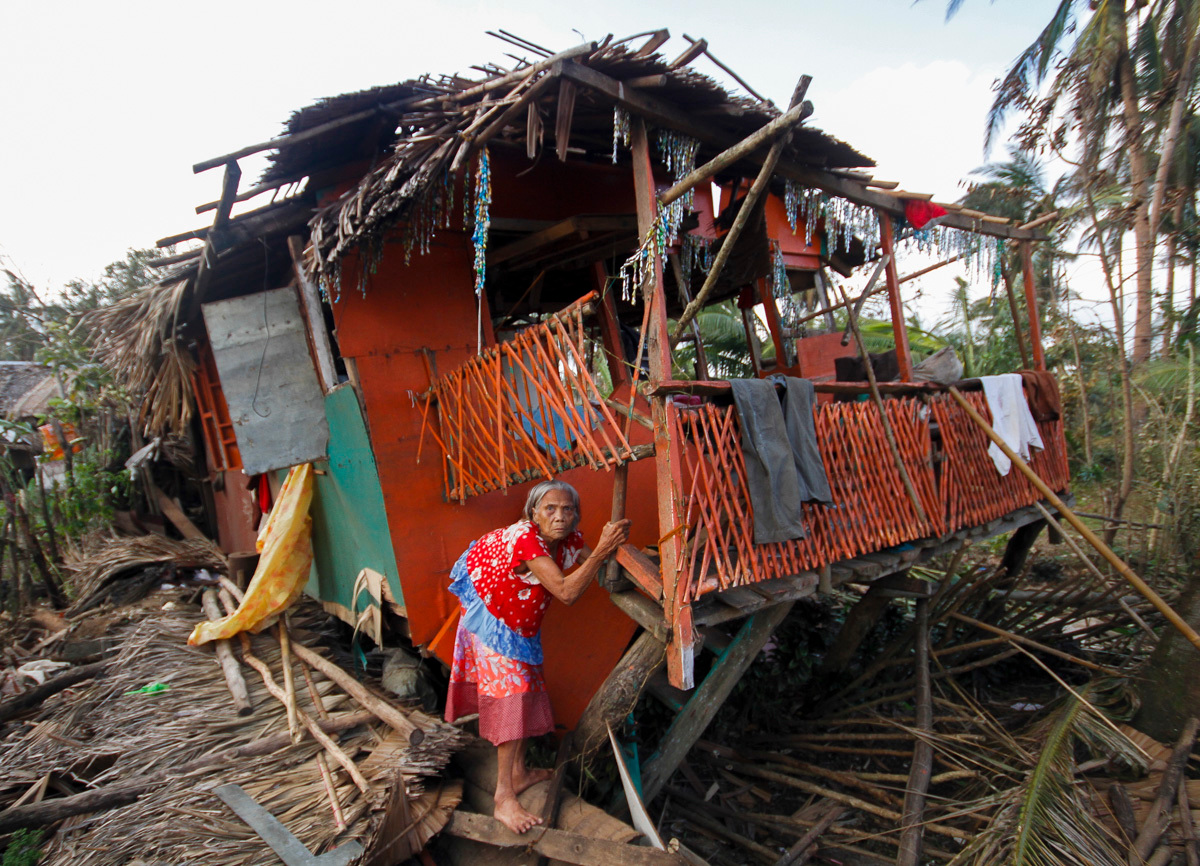
Enforcing Accountability: Holding Fossil Fuel Companies Liable for the Climate Crisis
This policy brief from Greenpeace Philippines outlines the urgent need for the Philippine government to adopt stronger measures in addressing the climate crisis, with a focus on corporate accountability and the protection of human rights.
-
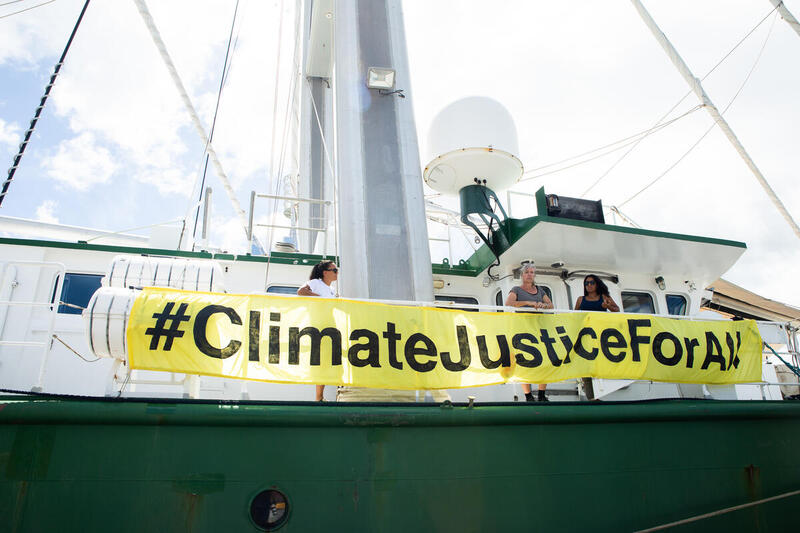
2023 Greenpeace Philippines Ship Tour Briefers
The climate crisis is here, and its impacts—loss of lives, homes andlivelihoods—are felt most deeply by the poorest and most vulnerable communitieswho are the least responsible. Fossil fuel companies need…




